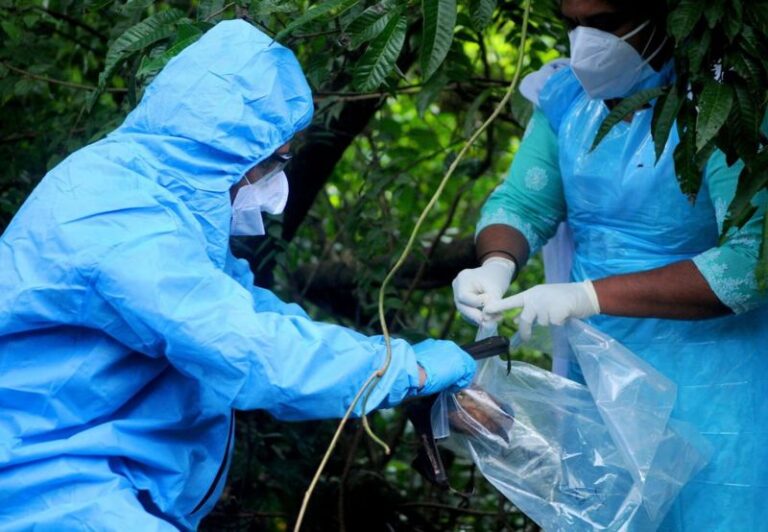
Nepal government has urged authorities concerned to adopt precaution after reports emerged of a 12-year-old child’s death due to the Nipah virus in Kerala of India.
So far, Nepal has not confirmed a single case of the virus infection. However, the Epidemiology and Disease Control Division has requested 118 hospitals and health institutions across the country to remain vigilant and promptly inform the government if any Nipah-infected patients are found.
Two others in India are confirmed to have been infected with the Nipah virus lately. The virus had spread in Kerala for the first time in May 2018, killing 17 people the same year.
The Nipah virus is transmitted from bats to boars and cattle and then to humans. The virus can also spread from person to person. The virus is found in the ‘Foot Bat Ja Theropus’ aka ‘fruit bat’ species of bats. The virus is transmitted to humans when they eat unwashed fruits eaten by the bat.
The virus is transmitted from an infected person’s urine, saliva, sweat and blood as well. People involved in pig and boar farming are at a higher risk of being infected.
Dr Sher Bahadur Pun, coordinator of Shukraraj Tropical and Infectious Diseases Hospital’s Research Branch, said that the ‘Foot Bat Ja Theropus’ species are found in Nepal in abundance.
According to the research conducted on Nipah virus infection in 2019, the species of bat is found in Kathmandu, Dang, Saptari, Sunsari, Morang, Jhapa, Kaski, Nawalparasi and other districts. “As these districts are the main breeding grounds for boars, bats can be found abundantly there. Thus, Nepal is at a high risk of this virus,” Pun said.
HOW TO DISTINGUISH NIPAH FROM COVID?
As per health experts, early symptoms of both the virus’ infection are very similar. However, the Nipah virus affects the brain and infected persons are more likely to tremble and faint quickly.
Other symptoms of this viral infection include fever, cough, nausea, difficulty in breathing, and body aches, and there is no cure. The virus is considered to be risky as it is likely to kill 45 to 75 percent of those infected.
As the virus can be tested only at the National Public Health Laboratory, the government has advised hospitals to send all suspicious samples there.
To avert Nipah infection, one should eat only well-washed fruits, well-cooked vegetables and keep cattle sheds and farms clean. Use gloves and masks while cutting and cooking meat is also advised.
Similarly, drinking boiled water, frequently washing hands with soap and water, and using masks when outdoors are some precautionary measures. Infection by the Nipah virus is considered one of the 10 deadliest diseases in the world.






